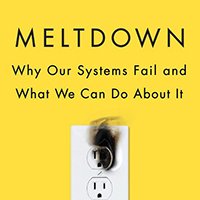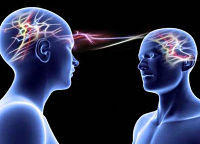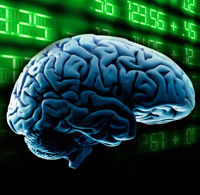Neuroscience
How having power is like having brain damage: a new book explains why systems fail (2018)
'Meltdown. Why our systems fail and what we can do about it', Clearfield, C., & Tilcsik, A. Atlantic Books, 2018. Excerpt via The Star, 1 April 2018. A new book,...
Written by: Chris Clearfield & Andras Tilcsik
Read moreThe psychological structure of humility. (2016)
“..humility is uniformly operationalized as a positive, socially desirable construct… (however) we found humility takes two distinct forms, ‘appreciative’ and ‘self-abasing’…” Aaron C. Weidman, University of British Columbia; Joey T Cheng, University...
Written by: Weidman, A. C., Cheng, J. T., & Tracy, J. L
Read moreWhy narcissists are unwilling to apologize: The role of empathy and guilt. (2017)
"...narcissists are unwilling to apologize for their transgressions, as they experience little empathy for their victims and lower guilt." Joost M. Leunissen, Nottingham Trent University, UK; Constantine Sedikides and Tim...
Written by: Leunissen, J.M., Sedikides, C. & Wildschut, T.
Read moreWinner and loser effects in human competitions. Evidence from equally matched tennis players. (2017)
"...among men, the winner of a closely fought tie-break had an approximate 60% chance of winning the second set, the loser a 40% chance." Lionel Page, Queensland University of Technology...
Written by: Page, L. & Coates, J.
Read moreHierarchy stability moderates the effect of status on stress and performance in humans. (2017)
"High status inhibits stress responses and improves performance during stressful situations in a stable hierarchy, but boosts stress responses and carries no performance advantage in an unstable hierarchy." Erik L. Knight...
Written by: Knight, E. L., & Mehta, P. H.
Read moreTestosterone reduces functional connectivity during the ‘Reading the Mind in the Eyes’ Test. (2016)
"Our findings ... reveal a neural mechanism by which testosterone can impair emotion-recognition ability…" Peter A. Bos, a, b; Dennis Hofman, a; Erno J. Hermans, c, d; Estrella R. Montoya, a; Simon Baron-Cohen, e; Jack van Honk, a, b, f Psychoneuroendocrinology,...
Written by: Bos, P. A., Hofman, D., Hermans, E. J., Montoya, E. R., Baron-Cohen, S., & van Honk, J.
Read moreDo brains of managers with different leadership styles function differently in making rational managerial and financial decisions? (2016)
"...investigators are using functional neuroimaging to explore ways brain emotion reactions influence financial decision making. United Arab Emirates University press release EurekaAlert! 13 April 2016 Dr Ahmed Abdel-Maksoud, UAEU; with...
Written by: Abdel-Maksoud, A., HassabElnaby, H., Elsamaloty, H., Wang, X. & Said, A.
Read moreThe psychological structure of pride: a tale of two facets. (2007)
"How can the one emotion (pride) serve such varied and, in many ways, antagonistic roles? Jessica L. Tracy, University of British Columbia; Richard W. Robins, University of California, Davis. Journal...
Written by: Tracy, J. L., & Robins, R. W.
Read moreTestosterone causes both prosocial and antisocial status-enhancing behaviors in human males. (2016)
“These findings (don't support) a simple testosterone-aggression relationship and (suggest) a more complex role in driving status-enhancing behaviors in males." Jean-Claude Dreher (a,b,c,1,2); Simon Dunne (a,d,1,2); Agnieszka Pazderska (e); Thomas Frodl (a,f,g);...
Written by: Dreher, J. C., Dunne, S., Pazderska, A., Frodl, T., Nolan, J. J., & O’Doherty, J. P.
Read moreThe role of hormones in financial markets. (2016)
“It's been argued that financial traders are 'too male' and a more even gender balance would reduce volatility and help stabilize markets.... (Having more) female traders does not necessarily make markets less...
Written by: Bose, S., Ladley, D., & Li, X.
Read more














